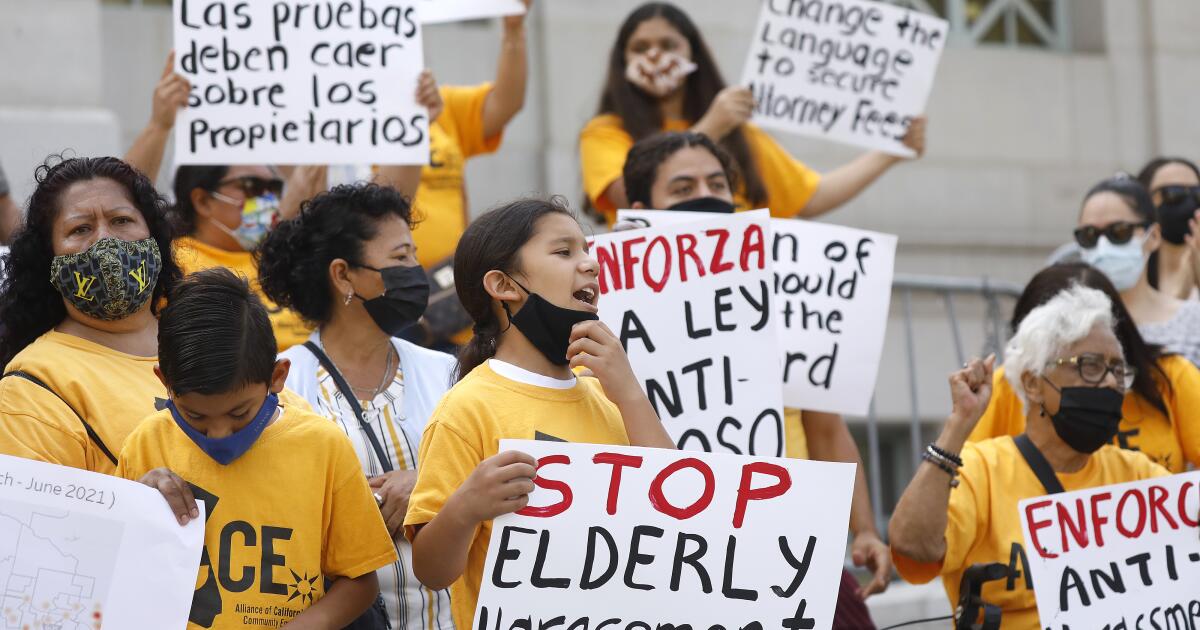The Los Angeles City Council on Wednesday voted to adopt an ordinance strengthening the city’s tenant anti-harassment protections and making it easier for tenants to sue landlords who violate the rules.
The tenant anti-harassment ordinance, known as TAHO, was originally passed three years ago in an effort to protect tenants from being threatened or intimidated by landlords. It was greeted as an important victory for renters, but advocates began pushing for changes as it brought in thousands of complaints but resulted in no prosecutions.
The council voted 11-0 to adopt the ordinance, which updates TAHO. The decision comes one day after the council voted to support ending a rule that allows for renters to be evicted when landlords substantially remodel their buildings.
The new anti-harassment law entitles tenants who prevail in court to three times the amount of damages, minimum penalties and attorney’s fees.
It also redefines harassment as “a landlord’s bad faith conduct” directed at tenants that causes them detriment or harm.
The changes, advocates said, will better protect renters and help create incentives for private attorneys to take on harassment cases, a change they said was necessary to bolster enforcement of the rules.
As of this summer, city housing officials said they had received more than 13,000 complaints alleging harassment. No cases had been criminally prosecuted.
Landlord advocates spoke out against the new law during Wednesday’s hearing, saying it is intended to increase litigation.
“This will cast an absolute chill on any communication between owners and renters as small owners will live in fear of false claims of harassment,” said David Kaishchyan of the Apartment Association of Greater Los Angeles.
Dozens of tenants also gathered in the council chambers Wednesday to urge the council to approve the law and to adopt limits on rent increases. Several spoke of experiencing harassment at the hands of a landlord, including Rosalba Vargas, who said she has faced harassment at her rental unit for years.
“Rent increases are motivating owners to evict people who have lived in their properties for many years so that they can charge more money,” she said. “That’s why they harass us.”
The harassment, she said in tears, “affects our mental and our physical health.”

